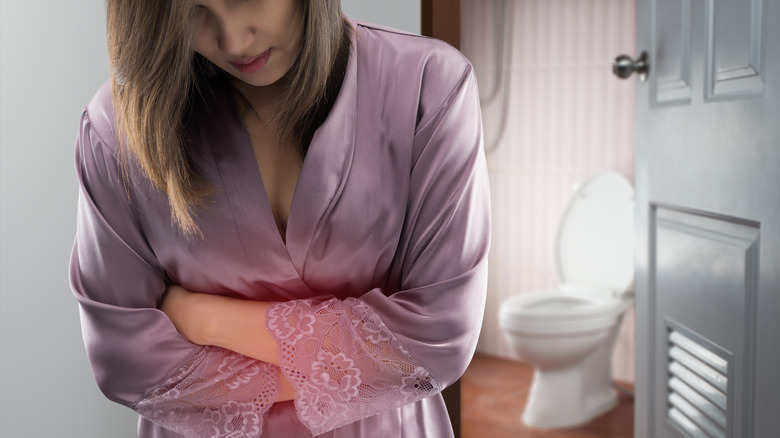Prevent Nighttime Bathroom Runs With A Supplement You Might Already Have
Nothing frustrates a perfectly good night's sleep more than a need to pee. You toss and turn, wondering if you can hold it until morning. Flicking on the bathroom light wakes you up even more, and you find it more difficult to get back to sleep. While an occasional nighttime bathroom run is relatively normal, it becomes more common as you reach your 40s, and the frequency increases with age. People in their 60s will get up twice a night to pee.
Sometimes needing to pee at night comes from drinking too many liquids such as alcohol before you go to bed. Your prescriptions might also cause more frequent trips to the toilet. You can also get into a habit of peeing a few times a night. Your bladder might also be trained not to empty completely or it may become overactive at night.
If your nighttime bathroom runs have something to do with your bladder, you might be able to take magnesium to help. Your body knows when you need to pee because of a nerve signal from your bladder to your brain that tightens the bladder muscles when the bladder is full. Because magnesium regulates your nerve and muscle function, it might reduce urges to pee when your bladder isn't completely full. According to the Advanced Urology Institute, magnesium might help to relax your bladder so it properly empties.
Magnesium might help with an overactive bladder
One type of magnesium, magnesium hydroxide, was used in a 2005 study in BJOG to see how it affected women's issues with an overactive bladder and frequent urges to pee. Forty women were either assigned to take magnesium hydroxide or a placebo. More than half of the women taking magnesium said their urinary symptoms improved and they didn't have side effects. However, 1 in 5 of the women in the placebo group also said their symptoms improved. Additionally, the researchers didn't find any significant changes to their bladder function.
If you want to take a magnesium supplement to see if it reduces your nighttime bathroom trips, magnesium hydroxide is typically used to treat constipation. You'll find this form of magnesium in Milk of Magnesia or Pedia-Lax. Magnesium glycinate, magnesium malate, and magnesium citrate are more easily absorbed by your body, but no research supports their effect on urinary conditions.
Peeing at night could be a symptom of another condition
Before you begin taking magnesium supplements, you might want to rule out other conditions that might cause nighttime urination. You could have a nighttime overactive bladder even if your bladder is normal during the day. An obstruction or tumor in your bladder or inflammation could cause your bladder to have low capacity, resulting in the need to go more often. A urinary tract infection will trigger an urge to pee both day and night. Men with benign prostatic hyperplasia (an enlarged prostate) might find themselves visiting the toilet several times at night.
Sometimes an urge to pee at night might not have to do with a problem in your urinary system. Congestive heart failure, diabetes, and sleep apnea are conditions that could have you frequently waking up to pee because your body is producing too much urine. You might need a urinalysis to see if there's an infection or a blood test to check your kidneys. An ultrasound or CT scan can detect any structural problems in your urinary system. Your doctor will also rule out other conditions that cause frequent urination at night.


